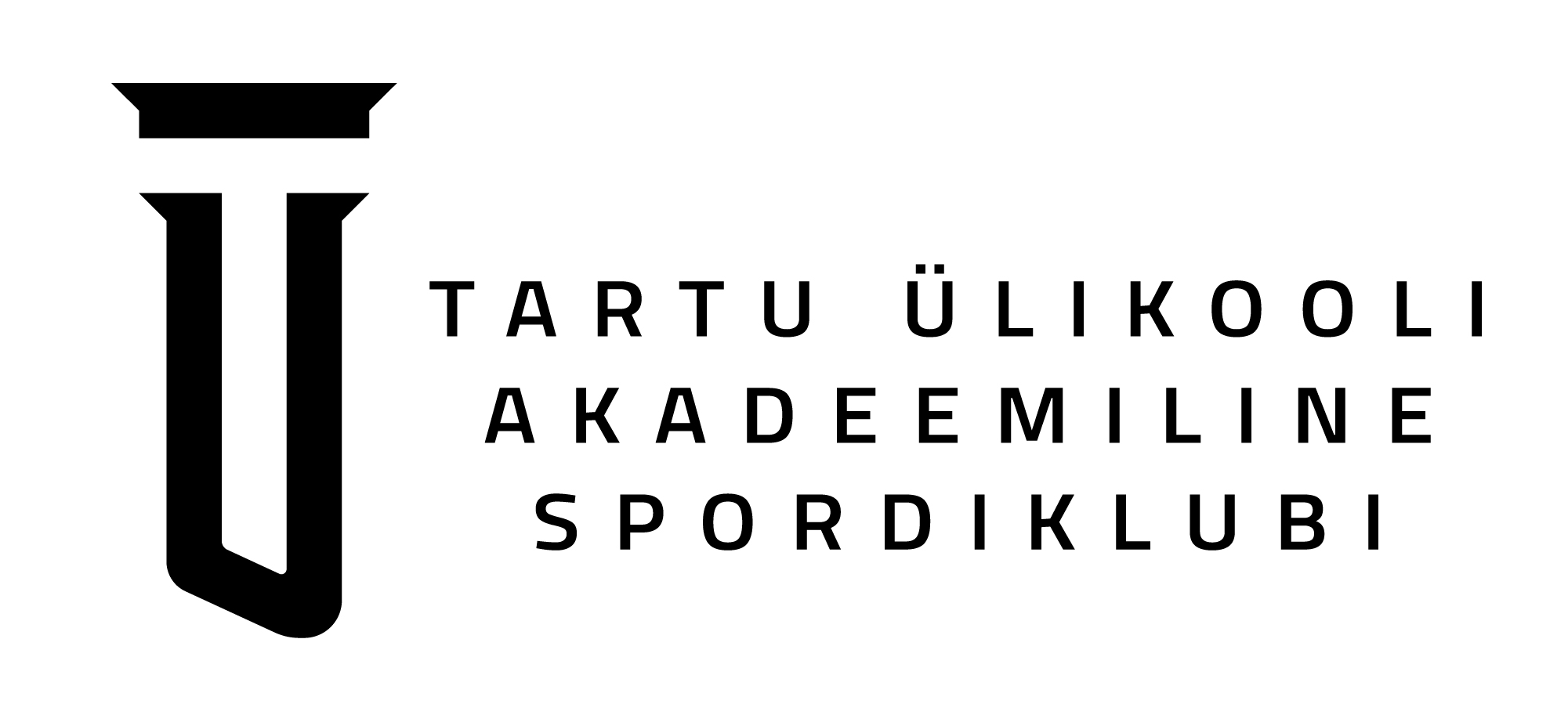It’s almost impossible to capture such an immense experience in a single blog post, but I’ll try to preserve the most important moments and share what meant the most to me.
The journey began in Saku
Our trip to Tokyo started with a pleasant surprise. The pre-camp in Saku exceeded all expectations. I was prepared for a simple routine of hotel, training, and meals — but we were received like kings. Already at Tokyo airport, a driver, escort, and interpreter were waiting for us with name signs. We were offered food and drinks, and soon began the three-hour drive toward Saku.
Our first stop in Saku was a restaurant where we had a full meal — and that became the pattern for the entire stay: lunches and dinners in some of Japan’s best restaurants. On the very first evening, massages were arranged for us — covered by our hosts. The next day, they took us to the stadium, where we could use the running track and later held a demonstration session for local children. That moment was symbolic — sport and the wellbeing of children are a language both our nations understand.
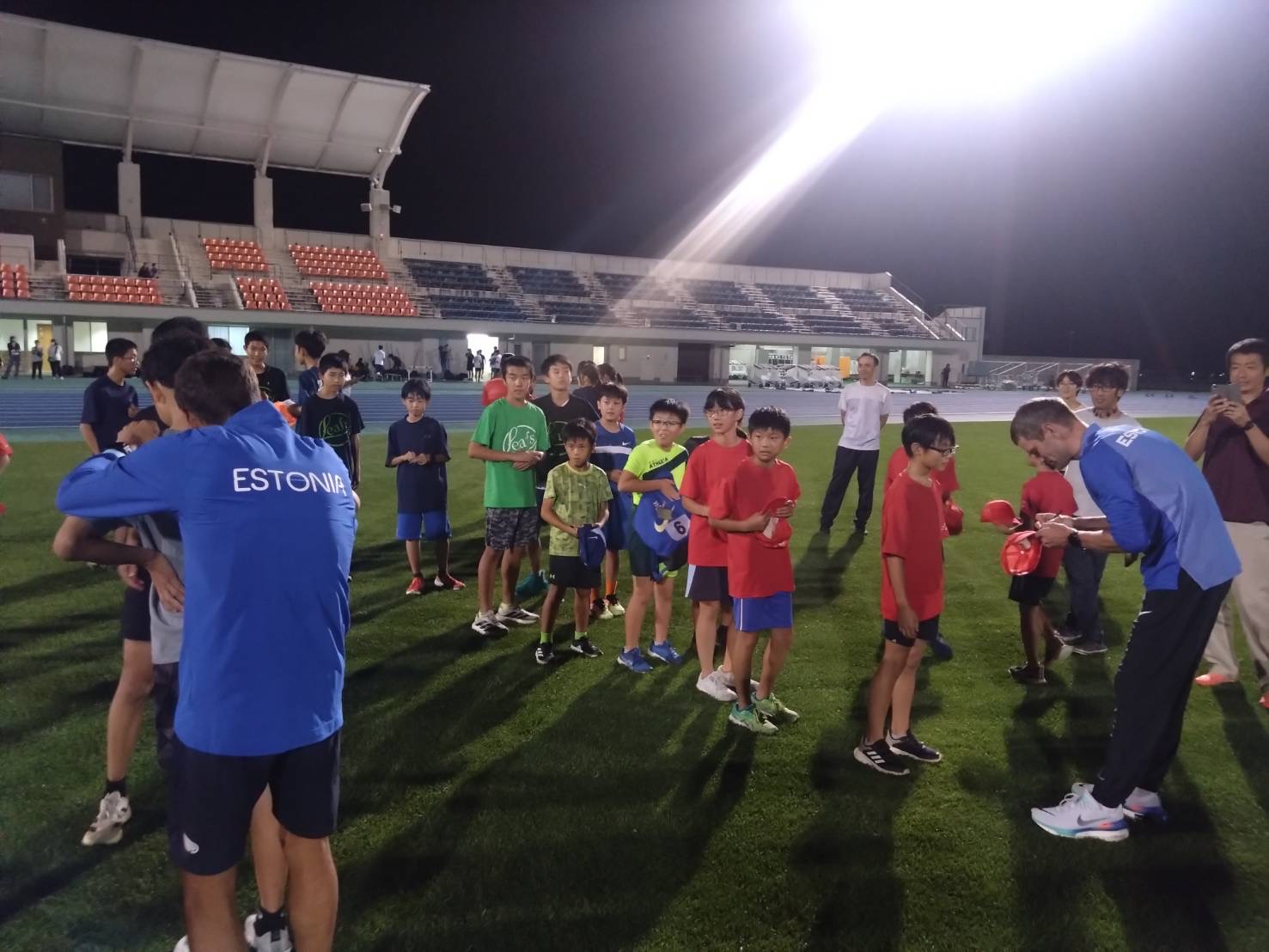
On the last day of camp, as the decathletes had also arrived in Saku, we were welcomed by the city government. The Estonian anthem was sung, speeches were given, and we met the mayor. I also had the opportunity to speak and thank the locals. It was deeply moving to see how warmly Estonians are regarded in Saku — that friendship, built over years, was the reason for such a heartfelt welcome. I’m grateful to have experienced it from the start together with my teammate Leonid Latsepov.
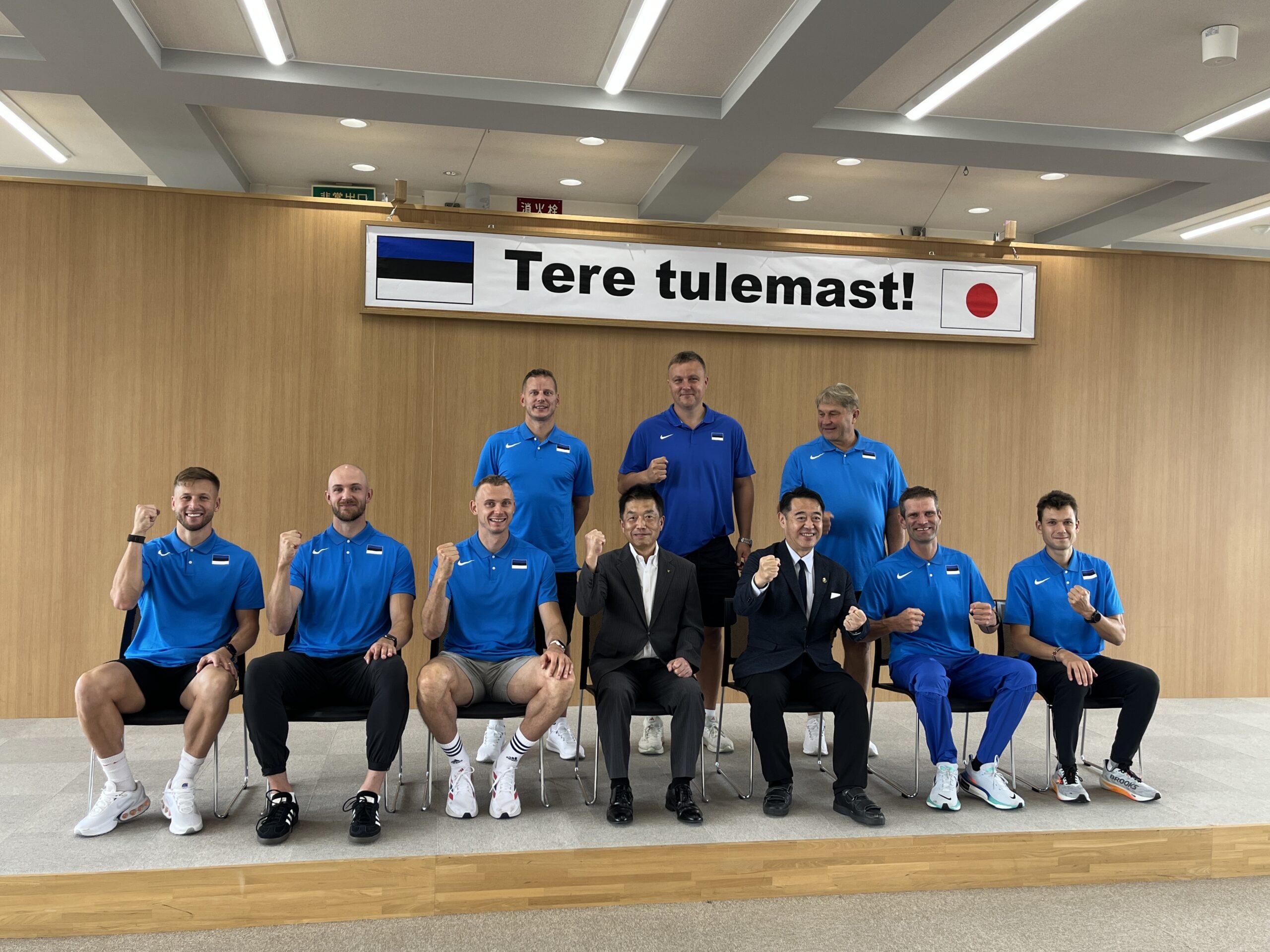
The road to Tokyo
We travelled to Tokyo by Shinkansen — 300 km in an hour! That alone was an experience. The athletes’ hotel was enormous — thousands of athletes and officials sharing the same elevators, dining halls, and training facilities. Every detail had been meticulously organized.
One surprise awaited me at the hotel — every morning at 9:00 there was an athletes’ prayer meeting. I didn’t make it there in the first days, but after the marathon I attended three times. The room was always full — athletes of many nationalities and disciplines worshipping God together. The worship was led by a German Olympic champion from Paris, and the group discussions by the new world champion Nicola and the sports chaplains. It was certainly one of the most valuable experiences of the entire trip.
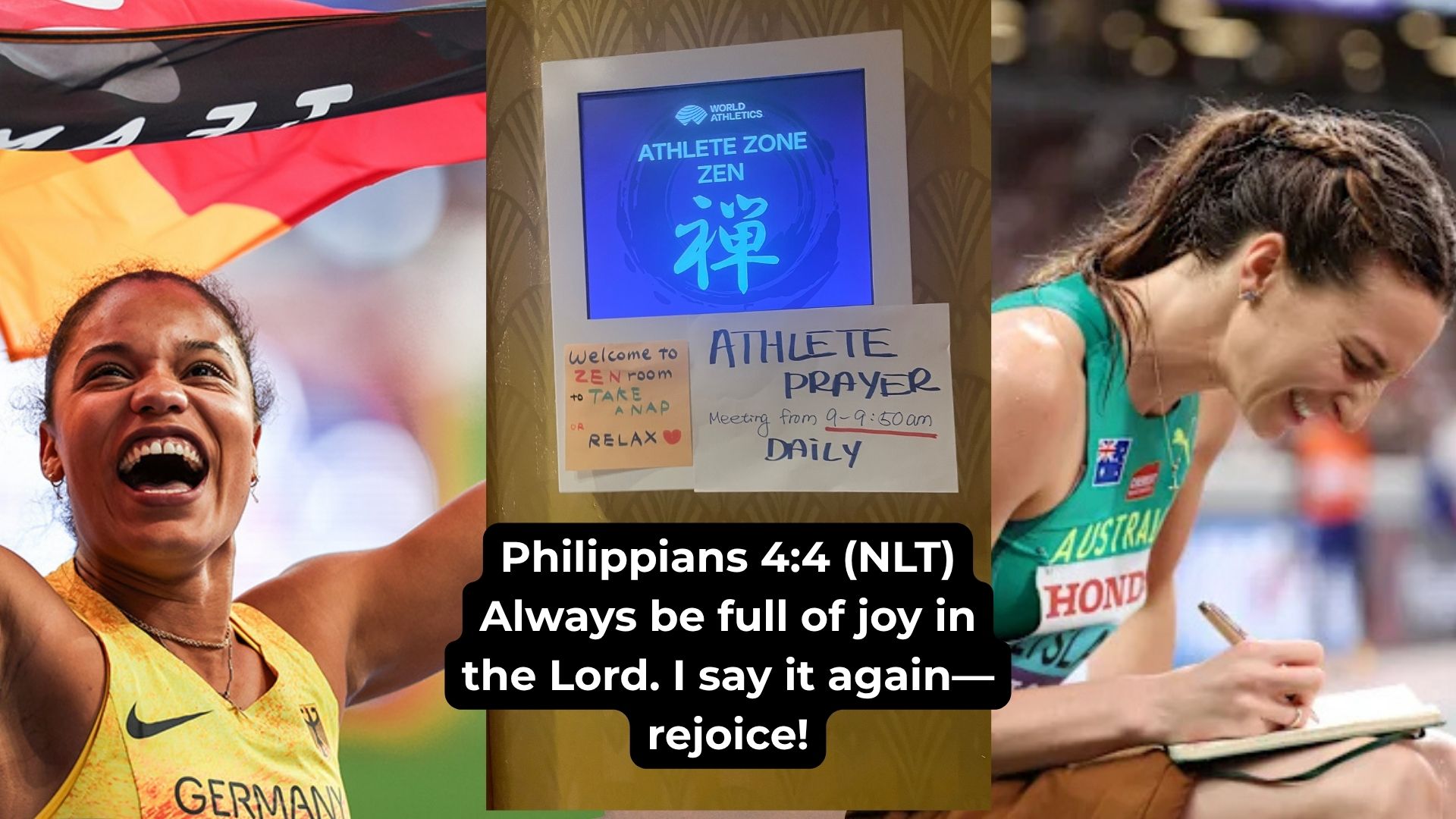
The marathon — a hard day, a worthy lesson
The start time was moved half an hour earlier because of the challenging conditions — 26–28 °C and 54–68 % humidity. I was ready for it: since early August I had trained in a heat chamber at 32–35 °C and 70 % humidity.
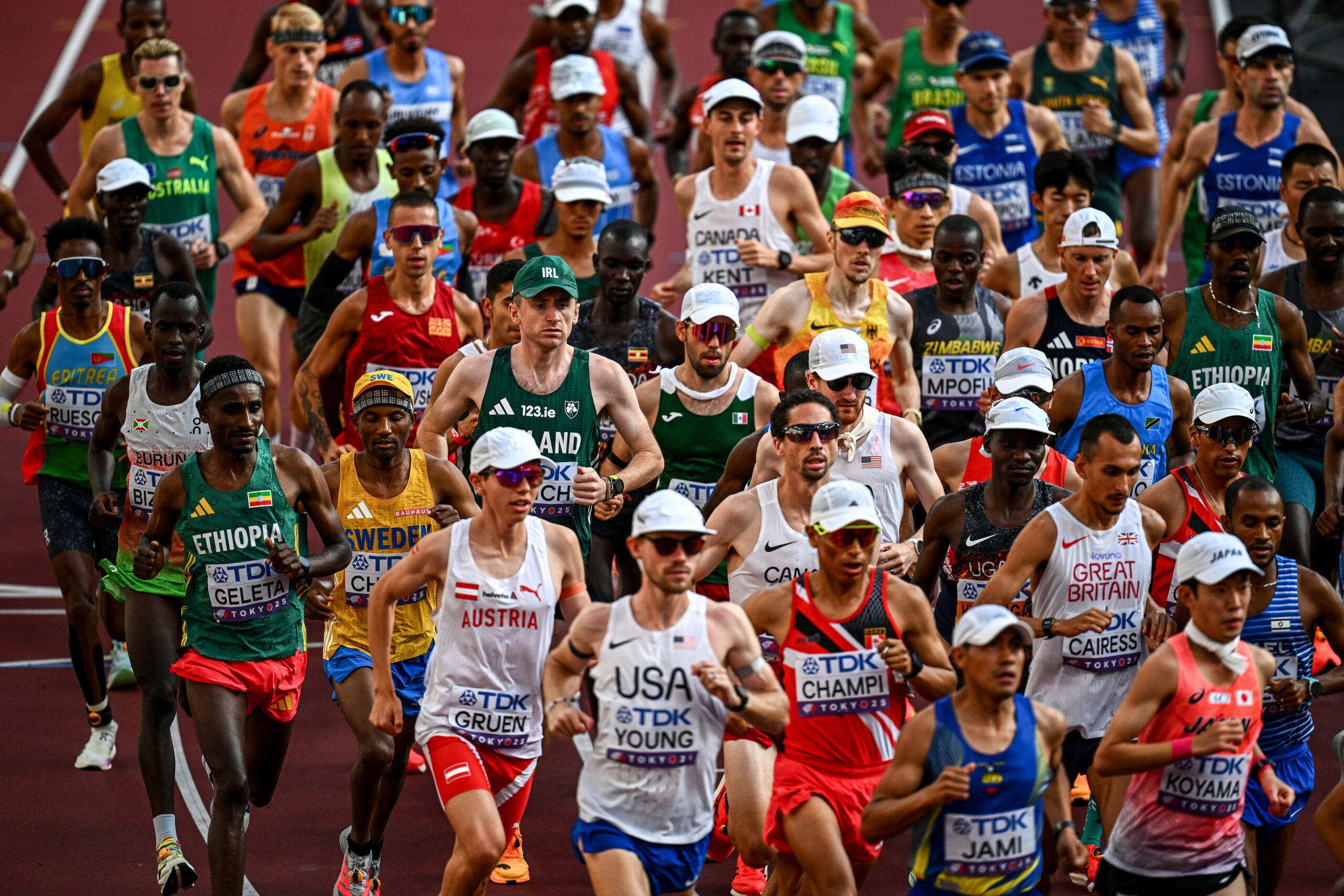
Still, on race morning I felt slightly dizzy — perhaps affected by sleepless nights in Tokyo. The first kilometers were tough and my legs heavy, but soon my body woke up and I found a group to run with. That alone was a rare experience — group running at a world-championship marathon!
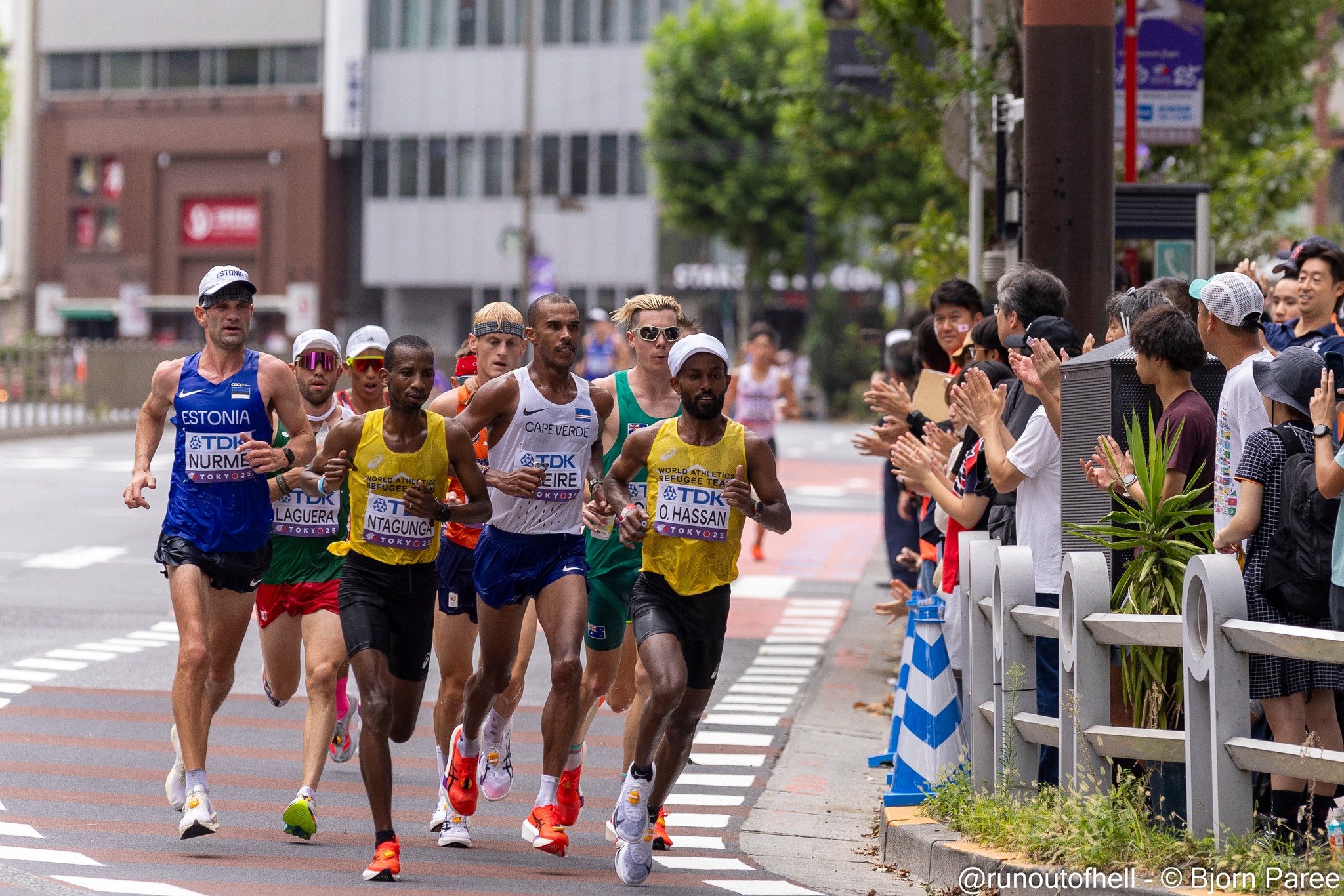
Our kilometer splits varied between 3:10 and 3:15. At the drink stations, our system worked flawlessly: I received my bottles and ice caps perfectly on cue. Our marathon team (Mark, Harry, Sirje, Urmo, Rasmus) executed everything with precision. With a system like that, many strong nations could achieve better results — the Estonian strength lies in organization and teamwork.
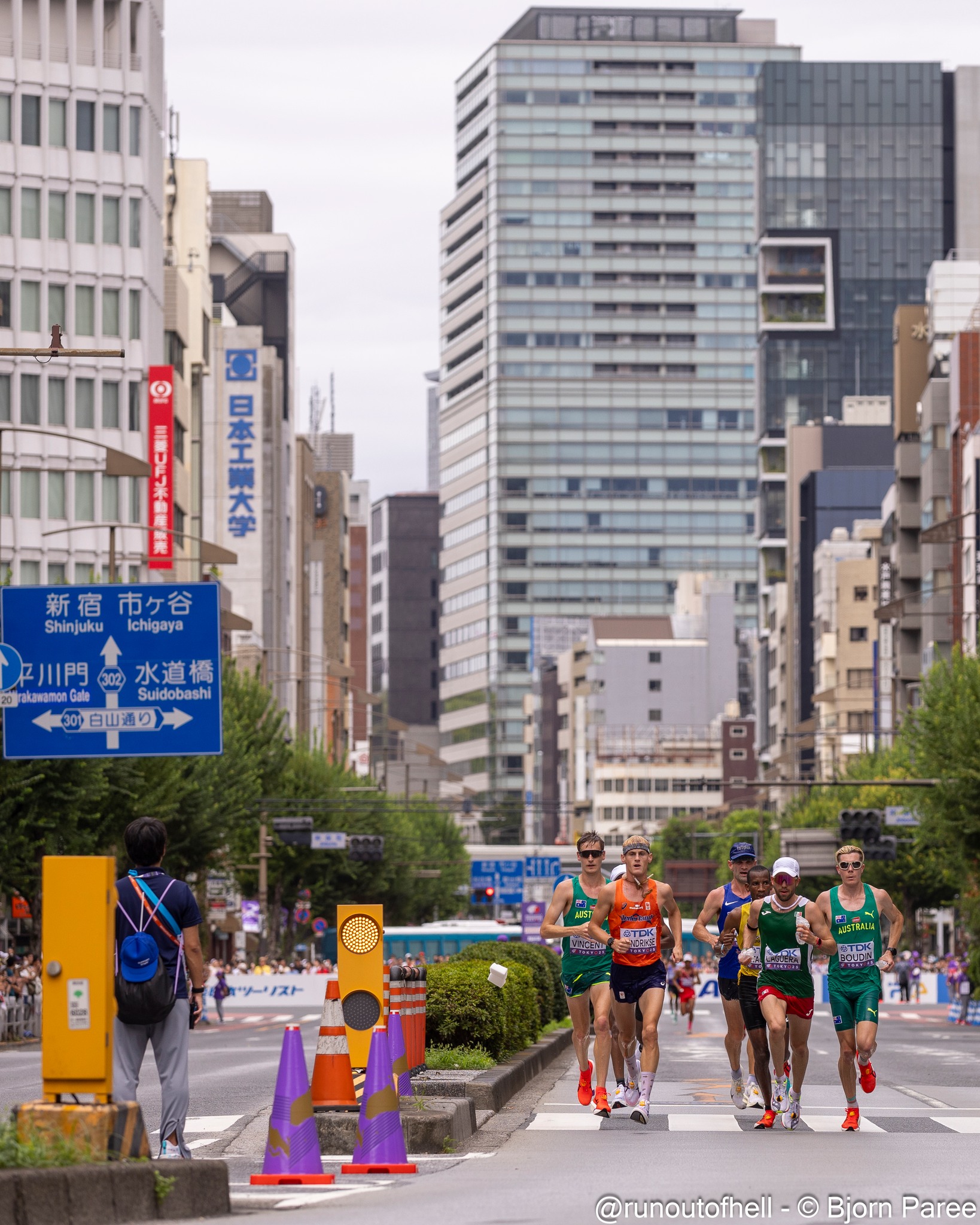
At the 25-kilometer mark, everything suddenly changed — as if someone had cut my energy with a knife. My heart rate spiked, power dropped, and I had to fall back and switch to survival mode. It reminded me of my experience in Vienna — the race turned into a test of endurance and will.
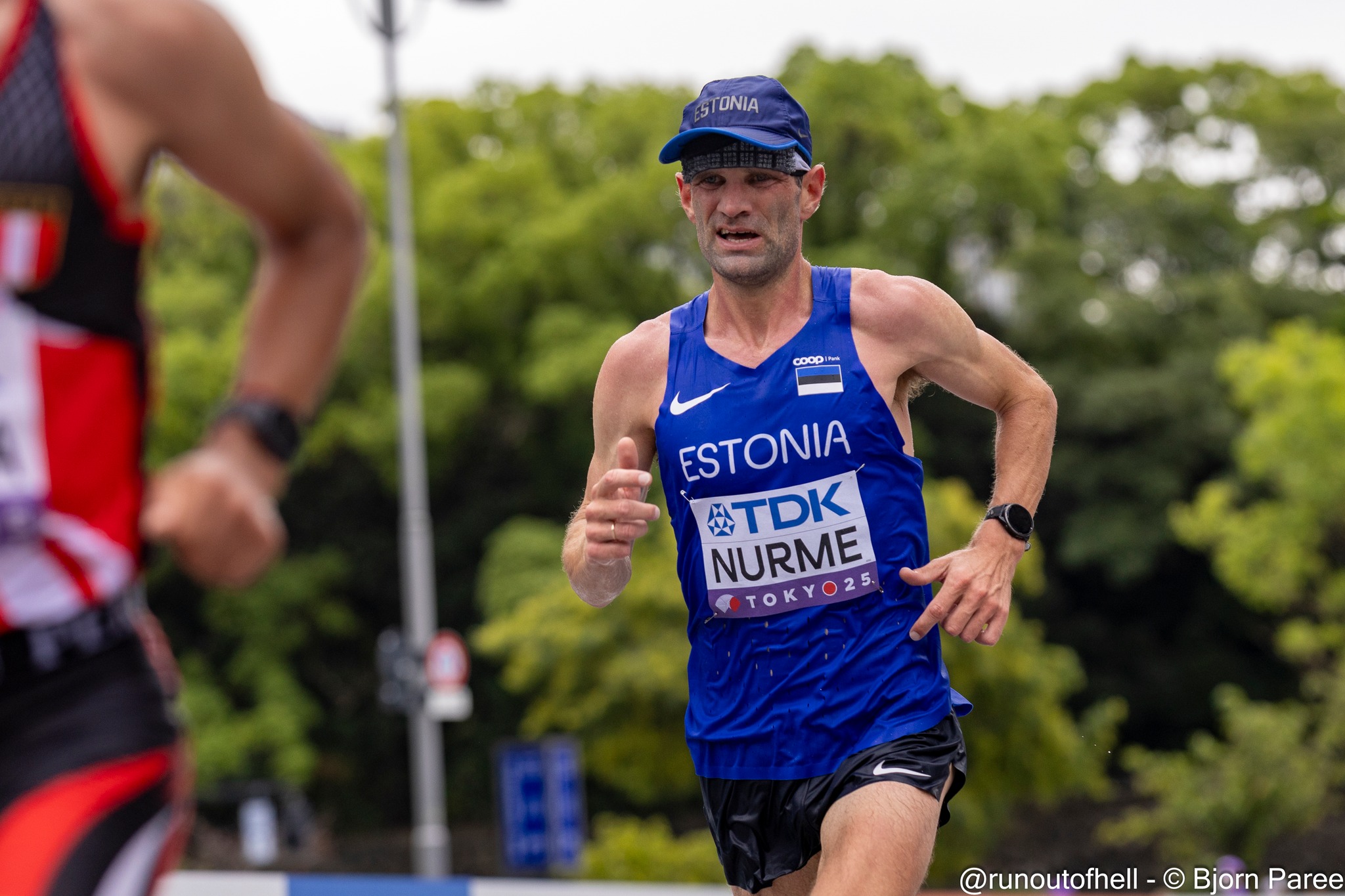
Yet I chose to fight on, and even at a slower pace managed to pass several runners. Out of 66 finishers, I placed 51st; 22 runners dropped out, and two didn’t start.
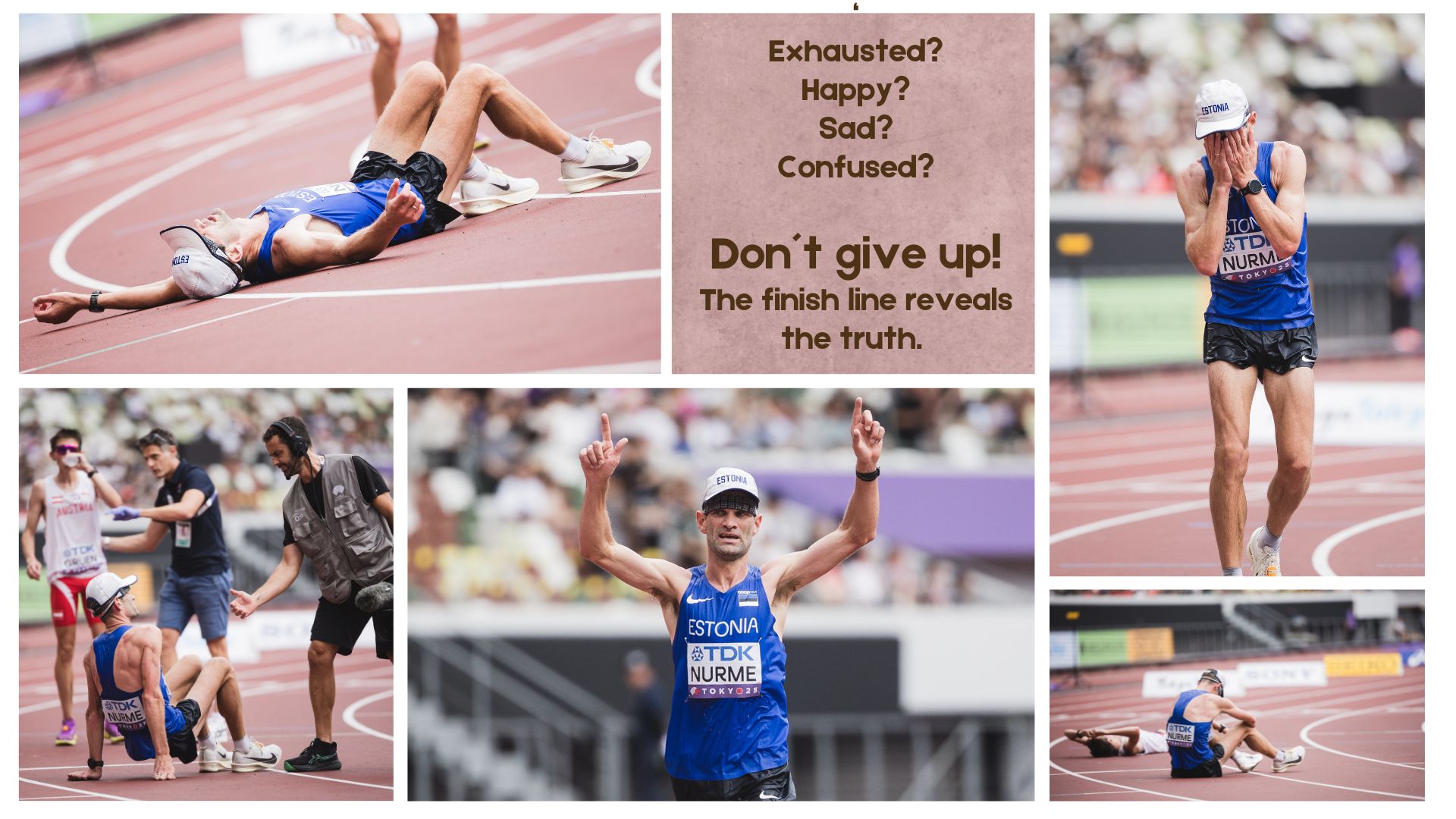 The initial analysis suggests that the heat-chamber training may have drained my system more than expected, and I couldn’t reach perfect form on race day. Fluid loss and side stitches might have been related to reduced absorption. The treadmill in the chamber also limited high-speed training, which could have played a role.
The initial analysis suggests that the heat-chamber training may have drained my system more than expected, and I couldn’t reach perfect form on race day. Fluid loss and side stitches might have been related to reduced absorption. The treadmill in the chamber also limited high-speed training, which could have played a role.
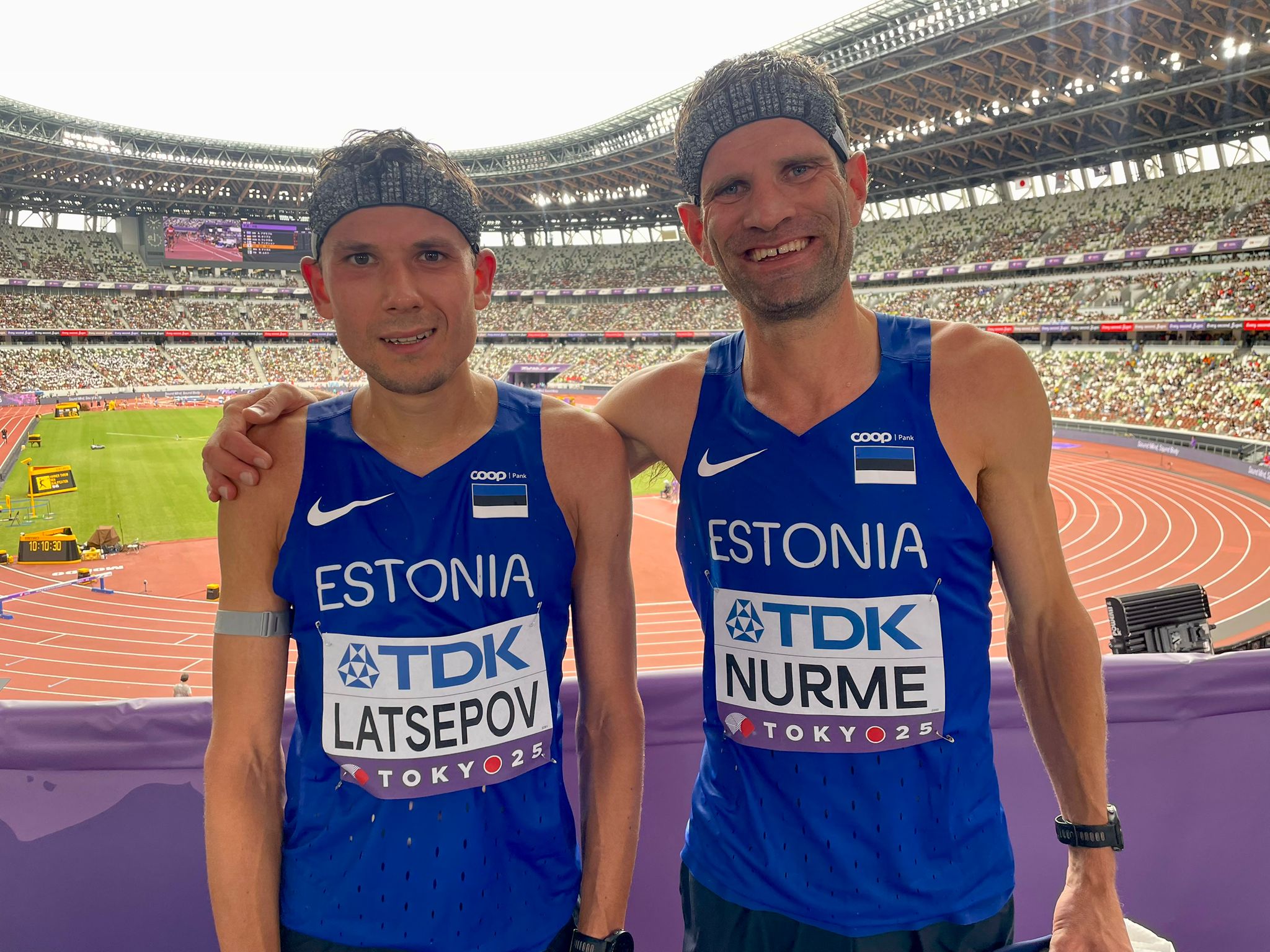
Both Estonian men finished the marathon. It was our first time competing as a full team. Expectations were higher than 51st and 63rd — and they had to be, because we are performance athletes. What we truly accomplished will only become clear later, perhaps years from now. I’m grateful to have shared this journey with Leonid. In fact, it began back in the spring of last year — since then we’ve held training camps together in France, Kenya, and Portugal. To qualify, we needed strong marathon results over the past 18 months, and finally the ranking system had to work in our favor — and it did! We came, we competed, and we kept the Estonian flag visible and high in Japan. Thank you to everyone who made this long, demanding, and meaningful journey possible. There are many people and organizations behind us. Onward we go!
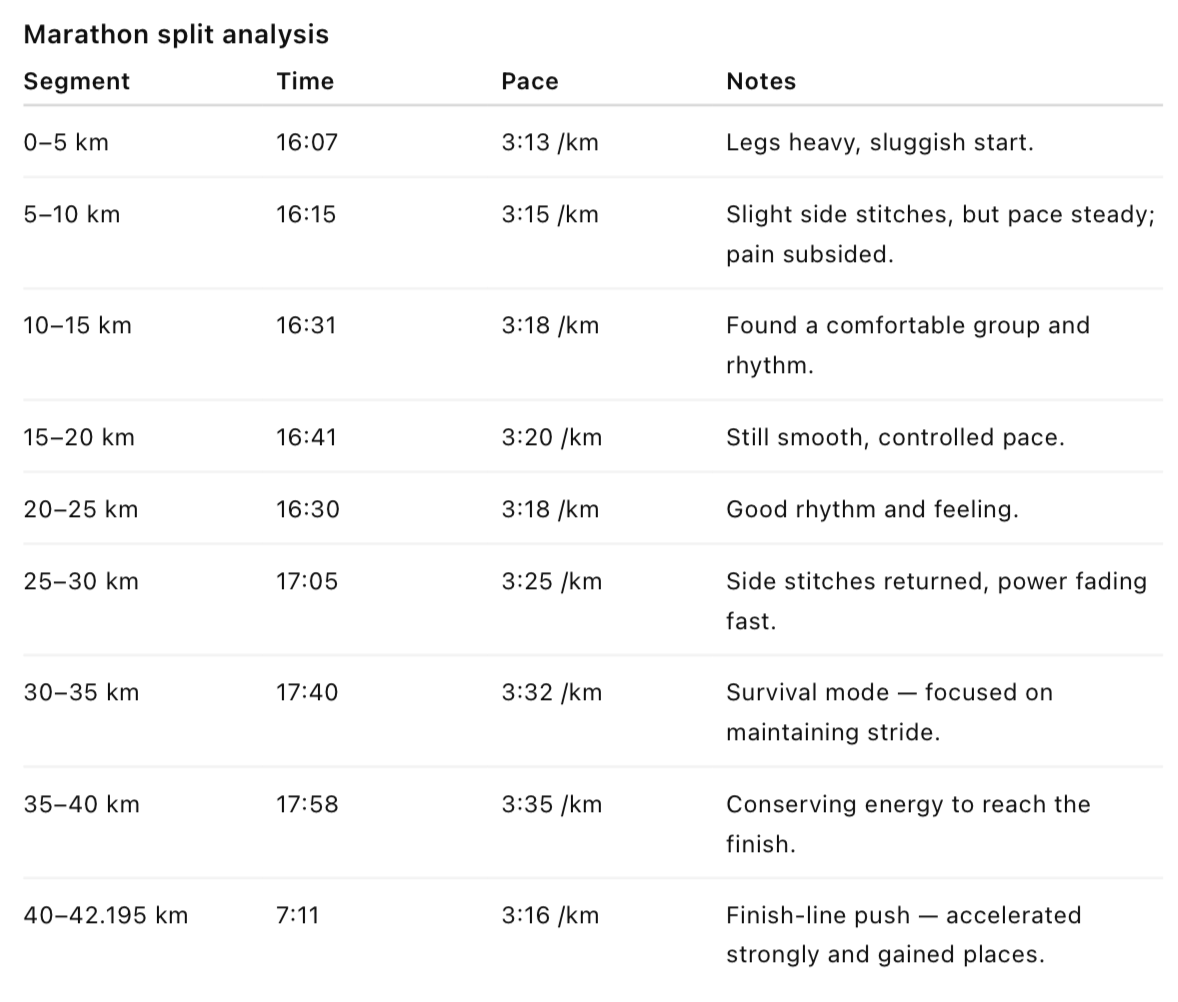
After the marathon
For the first time, I could stay until the end of the entire athletics program and truly enjoy Tokyo. Many moments at the stadium will stay with me — Beamish’s gold, Nicola’s personal triumph, and the joyful Kenyan fans dancing in celebration. By coincidence, we even met Beamish’s parents in the Tokyo metro just hours before his victory!
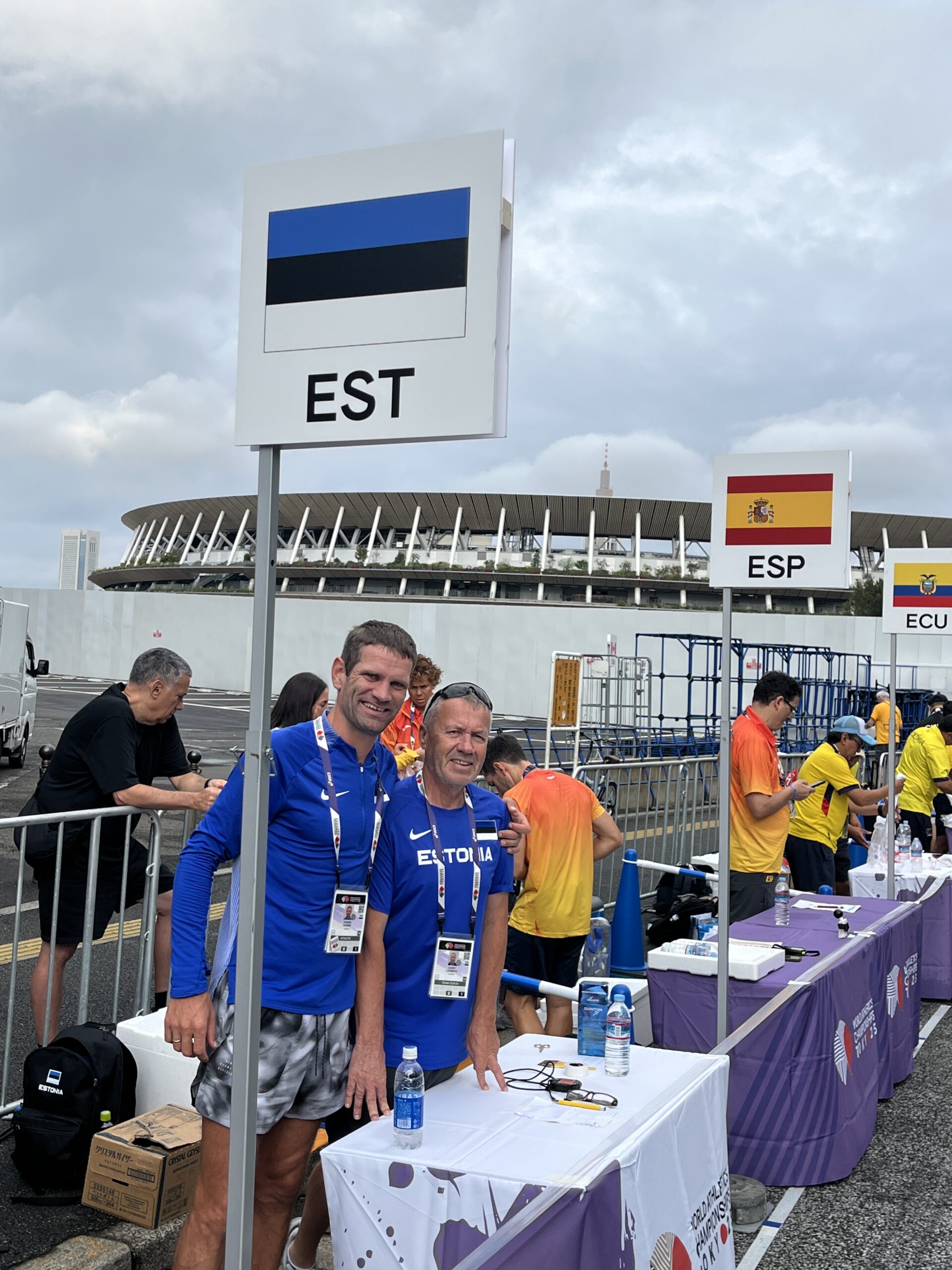
Another meaningful experience was joining coach Harry Lemberg at Jekaterina’s drink station. I witnessed firsthand how crucial support staff are to an athlete’s success — and gained new respect for race walking as a sport. It didn’t feel like coincidence that Katja and I had already worked together in the heat chamber.
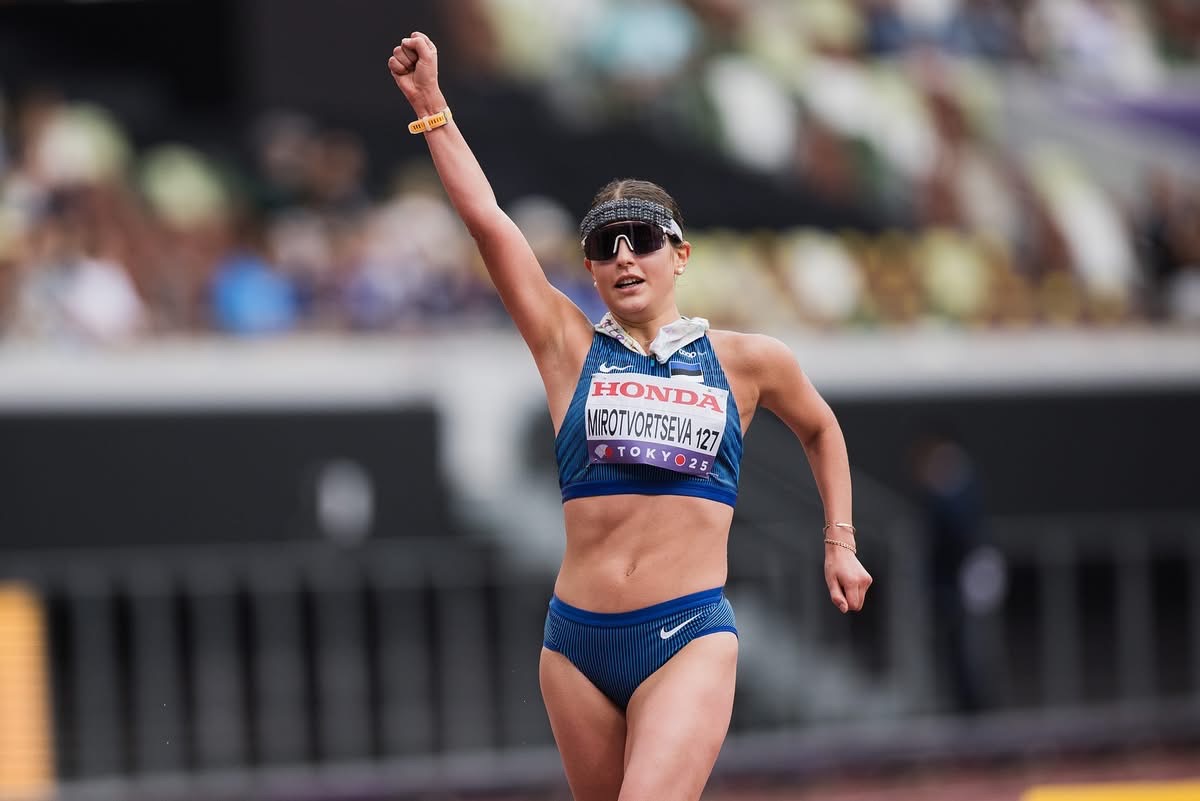
A detour to Fukuoka before heading home
Before returning to Estonia, I decided to take a small detour and fly to the opposite side of Japan — to Fukuoka. The city is familiar to me from the international marathon held there, where Pavel Loskutov finished 4th in 2002.
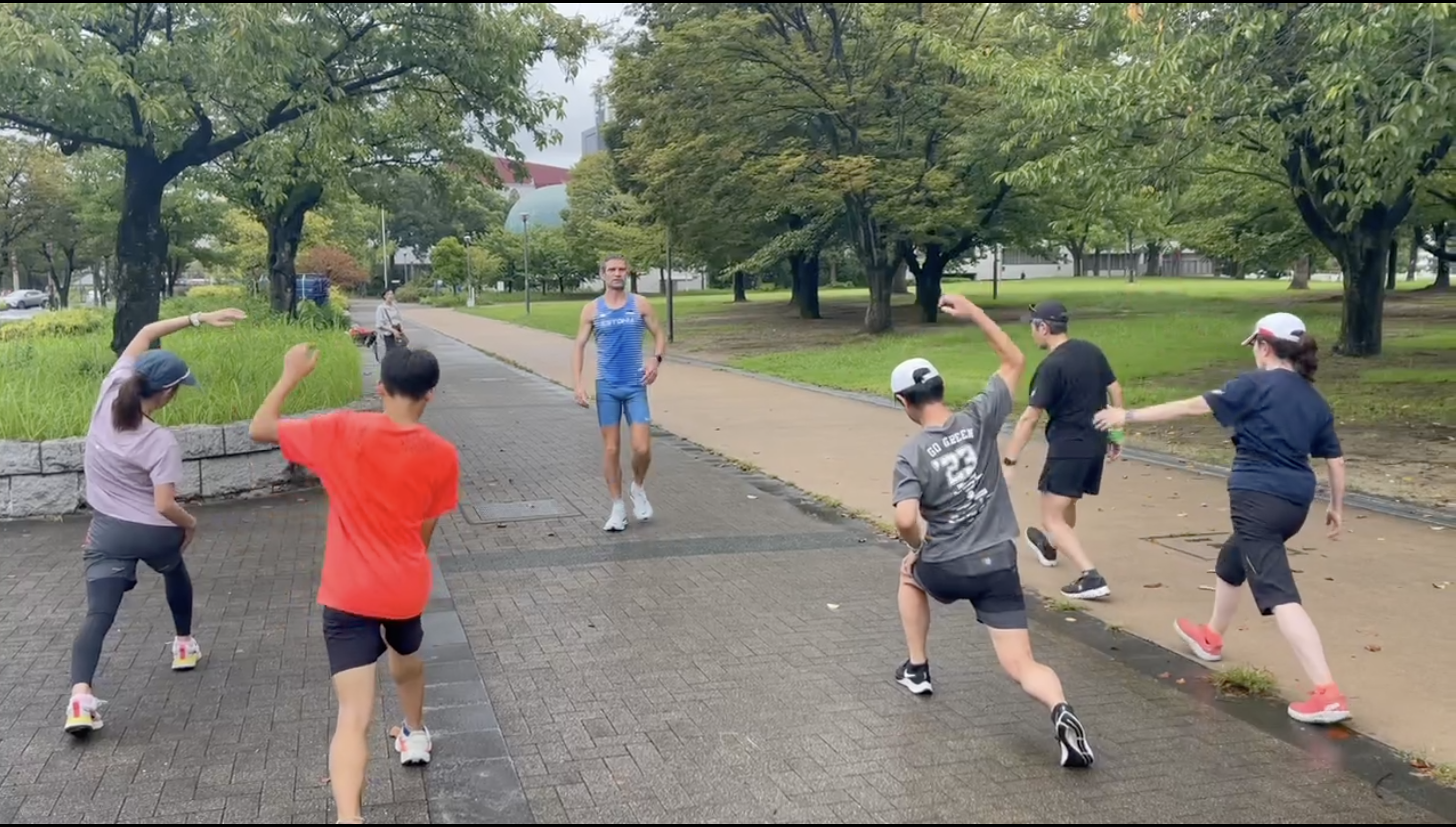
I was met by a running group led by physiotherapist Yuki — whom I had met earlier in Kenya, where I had been the host. Now the roles were reversed: in Kenya I hosted him, and in Fukuoka, in the city of Kitakyūshū, he hosted me.
On the very first evening, Yuki took me to a local hot-spring sauna complex. It was a real culture shock — everyone completely naked and completely at ease! Luckily the men and the women were sparated. After the evening sauna and the next morning’s run, we visited places meaningful to him around the city. In the evening, I experienced an unforgettable sushi dinner — fresh, delicate, and far beyond what I had ever imagined.
The trip ended with a 13-hour flight from Tokyo to Helsinki — long and tiring, but my heart was full of gratitude for everything I had experienced.
Looking ahead
My athletic career continues in full swing. The next goal is the European Championships in Birmingham, where Estonia will once again have the chance to field three marathoners and compete in the team standings. It will also be the last time the marathon is part of the main championship program — afterward, marathon championships will be held separately. That gives us one more reason to prepare with full commitment. Maybe this time, we’ll bring home that medal.
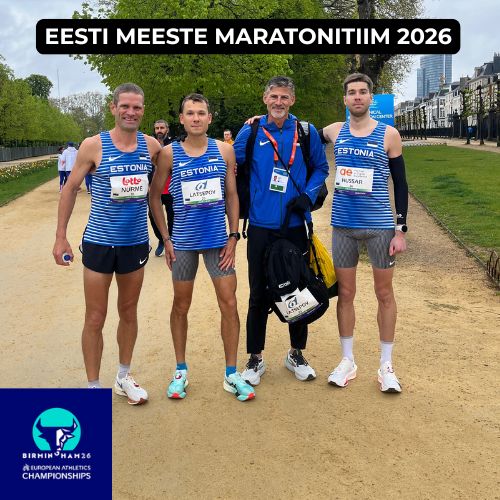
RESULTS
Post-race interview with ERR
Current team members:
-
Coach Mark Misch
-
Assistant coach & manager Harry Lemberg
-
Manager Charles Paanakker
-
Spiritual mentors Brad Bartz & Nick Schuetze
-
Massage therapist Peeter Nigol
-
Sports doctors Agnes Mägi & Mihkel Mardna
-
My wife Maili and our children

